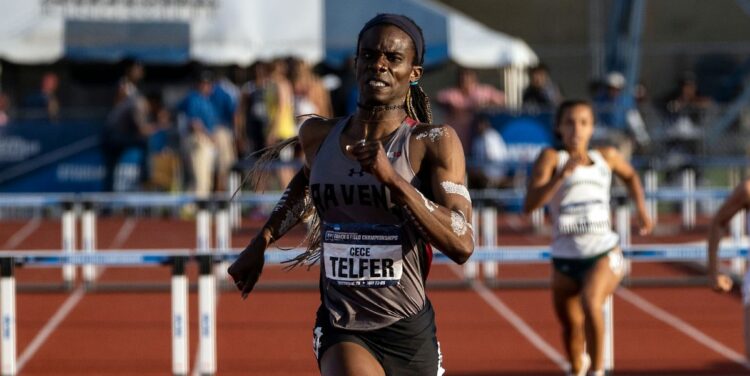CeCe Telfer, a transgender athlete, aspires to pursue an Olympic dream of qualifying for the United States Olympic trials, which begin June 18 in Eugene, Oregon, then race in the 400-meter hurdles.
Recently, state legislatures have peaked across the United States to bar transgender athletes, especially younger women, from competing on teams that match their gender identity.
According to the New York Times, recent debates over transgender athletes have made it more critical for Telfer to seize the opportunity to compete.
“It’s important for me to do it for these kids,” Telfer said to the publication.
“It’s important for me to do it for my people whether it be women, Black people, transgender people, L.G.B.T.Q. people, anybody who is scrutinized and oppressed.”
She currently meets the International Olympic Committee’s eligibility requirements after suppressing her testosterone levels and sustaining them for at least a year. However, to get to the Tokyo Games, where she hopes to race in the 400-meter hurdles, Telfer has to qualify for the national trial, which requires her to run the race in 56.5 seconds at a feeder meet.
Though some people have accepted and embraced her, Telfer said she has always felt like an outsider.
The athlete said she constantly receives dirty looks in public, death threats on social media, and feels out of place as a Black person in a majority-white community.
Related Story: Olympic Committee Bans Black Lives Matter Apparel At Tokyo Games
“I was always the ‘seventh friend,'” she said. “Nobody would invite me first. I would be the last one, or I would invite myself.”
Telfer abandoned track for some time in the spring of 2017 after being uncomfortable with the way others perceived her, and she soon after started testosterone suppression.
In regards to competing against men, she said, “They didn’t get that I was a female competing in the sport that I love.”
“They were starting to see me as a gay male athlete running with cisgender men,” she added.
In her 2018-2019 school year, Telfer asked her coach if she would be able to compete with other women, to which she expected a rebuttal.
Instead, she recalled, he responded, “Finally.”
“Then I started crying, and then my friend started crying,” she said.
“It’s like we didn’t know what was going on, and he said, ‘You can compete as CeCe, as yourself, as a girl.’
In more than 30 states, lawmakers have introduced bills intending to bar transgender women and girls from competing on teams that match their gender identity.
“Seeing how the world hated people like me, the dream not only became a reality, but it had a bigger meaning,” Telfer said.
Regardless of the obstacle and hardships she’s faced in the past, Telfer leaves it all on the track when it comes down to competition.
“I have to believe that this is going to help me get to the trials,” Telfer said of her training. “When I open my eyes, all I can see is Olympic trials.”















